The Dundee branch of Samaritans marked its 60th birthday this month – 24.7 – with a pledge to continue supporting the community 24 hours a day, 7 days a week.
And it’s clearly a much needed service – with Samaritans volunteers taking 10,000 calls a day from people who are struggling across the UK.
That’s one every 10 seconds.
Here, Dundee branch director Jo Ahern tells us how much being a listening volunteer at Samaritans means to her – and how you can become a Samaritan.
‘I haven’t looked back’
Jo, one of 45 volunteers at Old Glamis Road in Dundee says: “I’ve lost people to their distress.
“So, after I took redundancy and had more time, I decided to become a Samaritan. And, 11 years on, I haven’t looked back.
“Everybody who listens on the phone or who supports through email or letters, or in other ways for the charity, is a volunteer,” Jo continues.
“There’s nobody paid to do it.”
Who are the Samaritans volunteers in Dundee?
Jo explains: “There are 19 Samaritans branches in Scotland, so there are people all over the country, including Dundee, manning the phonelines.
“I’m always really proud about how Dundee contributes, we even managed to continue through the pandemic.
“We have people from all over Dundee and all different walks of life volunteering. But we need more.
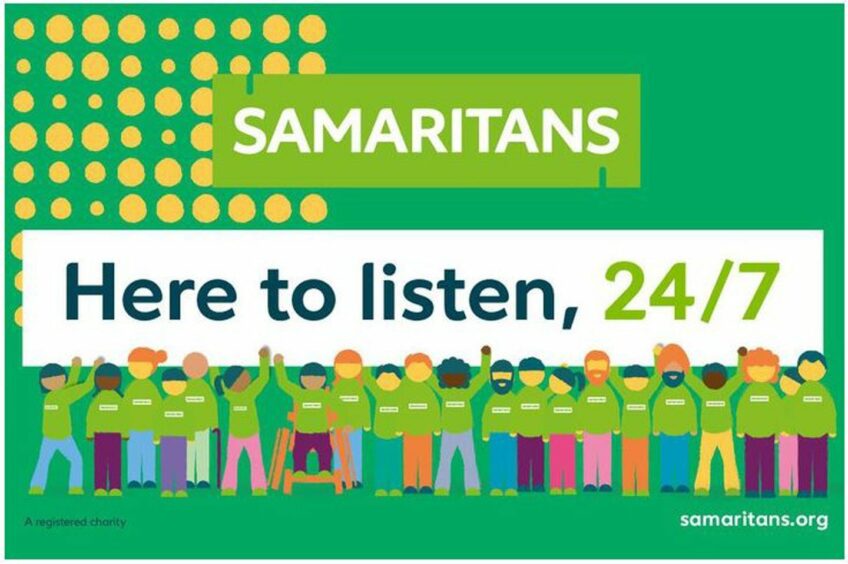
“As you can imagine, people talk to us about a wide range of things so we have to be emotionally stable to manage it. We could be talking to someone from Dundee or Penzance.”
How many hours does a volunteer do?
Jo says: “A Samaritan is asked to give a shift a week – anything between three and six hours at the branch.
“It’s not too onerous an amount of time so that a volunteer’s own emotional wellbeing is protected.
“Anything above that would be admin-based duties if they have extra time to give.
Jo continues: “It has been an absolute privilege for me to have listened to people who have called our helpline. I am the lucky one and it is a privilege to do it.”
What do Samaritans say to people who call in a state of distress?
“We take a wide range of calls, letting our callers define their own distress rather than us telling them anything.
“We stand alongside them when they’re going through something, without judgement, not trying to solve anything or tell them what to do.
“They come to us with what’s worrying them. They talk to us and we just listen and show empathy. Sometimes we sit in silence with them.
“In the last couple of years isolation and the pandemic has definitely contributed to people’s distress.
“But in the last 60 years, human elements have remained the same.
“Technology may have changed in that time, but someone just being there for another human being, showing empathy, has not.”
How do volunteers deal emotionally with calls?
“Everyone is trained to a high standard, it is excellent training. And we always debrief.
“There is always another Samaritan there to talk through any conflicts we may have after a call.
“We support each other through everything. If I have any worries about a call I can phone any Samaritan to talk – and I’ve done that before.”
Do Samaritan volunteers contact callers again?
“We never know what happens to anybody,” says Jo.
“We’re just in that moment with them. We don’t find out who they are or how life has gone since we talked to them.
“We accept that. There’s a real freedom in it. You’re talking to a complete stranger and you don’t need to know anything about them, or them about you.
“People can talk openly and candidly knowing they can just put the phone down and move on having had that moment of acceptance with somebody.”
How can I become a Samaritan – and what qualities are needed?
“We’re hoping to start training people again soon,” says Jo. “We have a structured rota so people can fit in when they’re able to.
“First of all, anyone who is thinking about joining us would have my thanks.
“Being open-minded and non-judgemental, empathetic and compassionate would be the best qualities to bring.
“Just go to Samaritans online and sign up to join us. There’s lots of great information there you can read up on first.
“But you don’t have to be a listening volunteer. We have volunteers who take on other roles – anything from doing the accounts to cleaning, fundraising or even displaying our number in their shops.
“The community support is everything to us.”
-
Anyone can contact Samaritans for free any time from any phone on 116 123, even on a mobile without credit. Or you can email jo@samaritans.org.
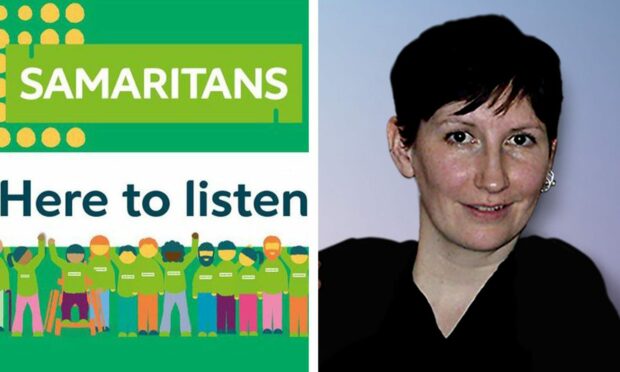
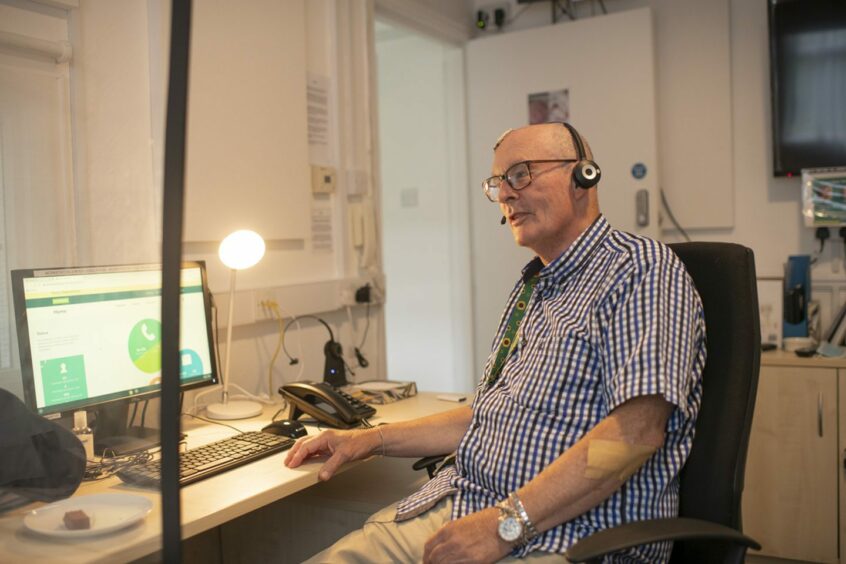



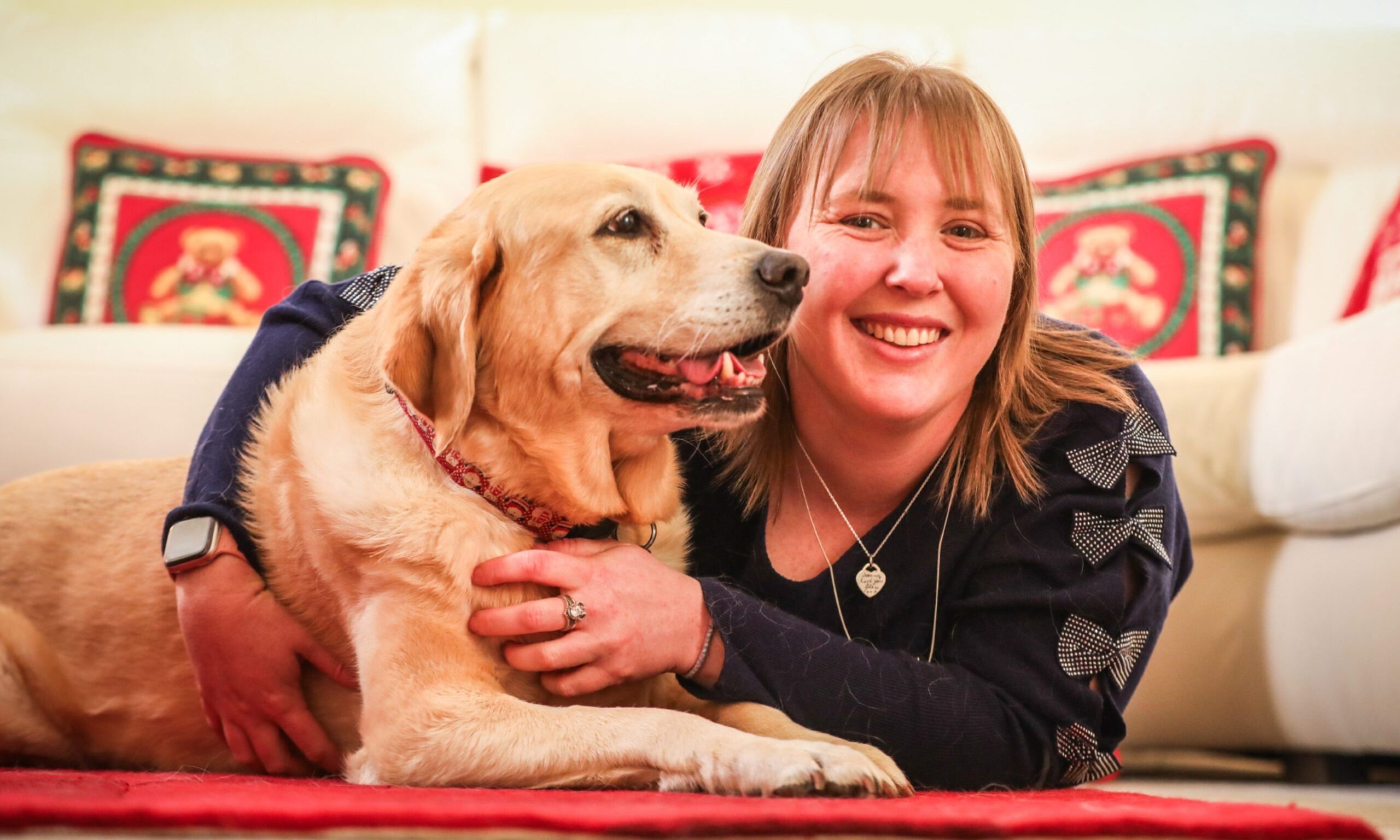


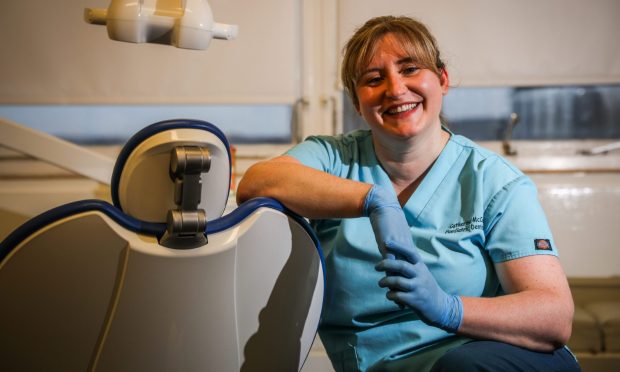



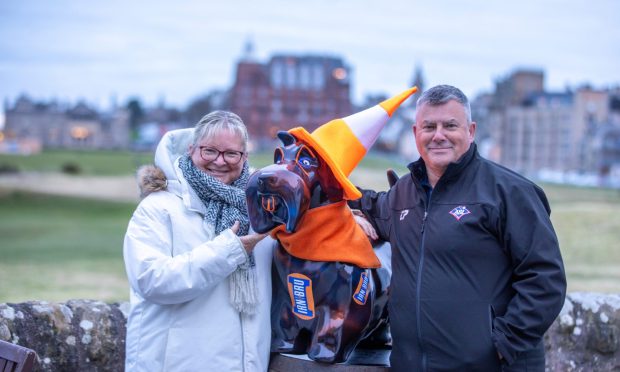

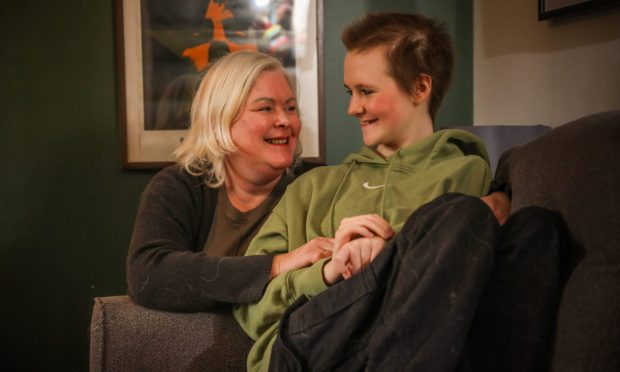
Conversation